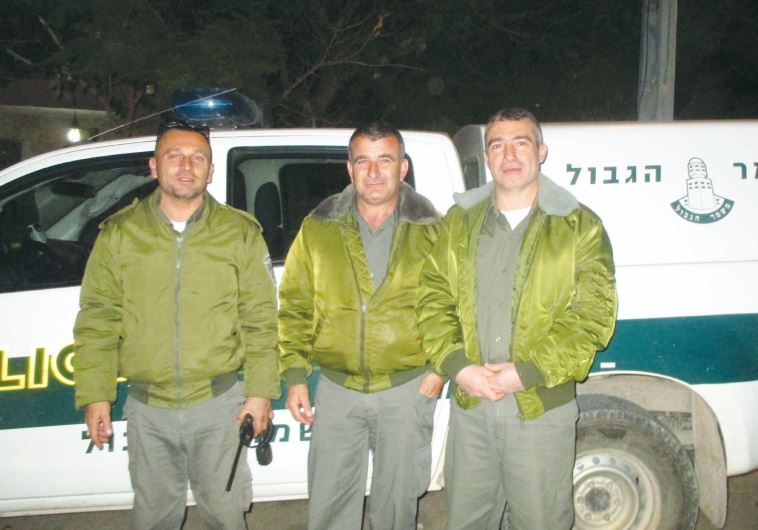Not your typical Hebrew teacher
Never could I have imagined my two research interests – international borders and Hebrew language teaching – converging like this.
 The Druse Hebrew teacher border patrol: from left, Kamal, Nimer and Emad(photo credit: WILLIAM F.S. MILES)Updated:
The Druse Hebrew teacher border patrol: from left, Kamal, Nimer and Emad(photo credit: WILLIAM F.S. MILES)Updated: